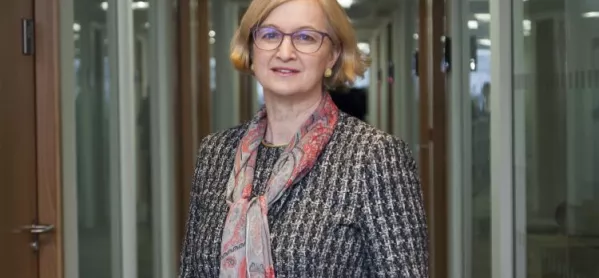On the day we learned who our new prime minister would be, I was speaking at an education event.
I found myself reflecting on encouraging trends in education over the past decade, many of which get far less celebration that they should.
First of all, we are seeing a whole different level of teacher engagement in discussion and development of every aspect of education itself. The renewed conversations about curriculum are just one aspect of a remarkable burgeoning of intellectual and practical interest, fuelled by online opportunities but also translating into many blogs, events, publications, friendships and creative partnerships.
And a big part of this engagement is an interest in research and evidence. More and more people want to see ideas tested and to be sure that what they take into classrooms has the greatest chance of success. Increasingly teachers are recognising that what matters is not just whether activity x has educational value or not: every child’s time at school is finite, so we owe it to children to design an education that makes the best use of that time.
Then there is the recognition that while educational measurement usefully serves many purposes, data measures cannot bear the whole weight of defining quality of education. Twenty years on from those early performance tables, we understand what goes wrong when too much weight hangs on results (and yes, as always, I acknowledge that Ofsted has been part of this). We all now recognise that educational success is a multi-faceted construct, which can never be entirely captured through data measures: the human perspective is also necessary.
Ofsted chief inspector: ‘I see much to be cheerful about’
We are also increasingly willing to make the difficult stuff discussable, and orthodoxies challengeable. Problems that have existed under the radar for years are acknowledged and discussed. The distortions of education around coursework that went undiscussed for years are just one; children coming off school rolls for the wrong reasons are another. We increasingly recognise that there are real threats to integrity in education, and that the best way to address them is to discuss them openly, without lobbing virtual grenades. There are still areas where strong vested interests do their best to shut down open discussion, but these seem to be getting fewer, and I believe we can sustain this direction.
Finally, and building on all these trends, I believe we continue to embrace high aspirations for all our children, and in an increasingly grounded way, which makes them more realisable. It is not just “you ought to be aiming for the Moon”, but “you oughtto be aiming for the Moon, which means accomplishing a number of stages, and here is how we can do our best to make it possible for you to work your way successfully through each stage”. This is ultimately how we do our best for all children, but most of all for those who for whatever reason have a difficult journey to make.
In summary, while big challenges remain, and there is and will always be room for improvement on all our parts, I see much to be cheerful and optimistic about: and above all, our teachers and everyone who works in schools.
Amanda Spielman is Ofsted’s chief inspector
This essay first appeared in A Decade in the Making: What next for young people in England?, a collection of essays published to mark the tenth anniversary and rebrand of the Centre for Education and Youth




